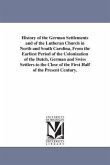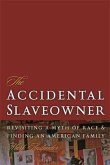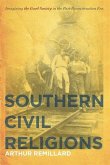Georgia, the last of Britain's American mainland colonies, began with high aspirations to create a morally sound society based on small family farms with no enslaved workers. But those goals were not realized, and Georgia became a slave plantation society, following the Carolina model. This trajectory of failure is well known. But looking at the Salzburgers, who emigrated from Europe as part of the original plan, providesa very different story. The Good Forest reveals the experiences of the Salzburger migrants who came to Georgia with the support of British and German philanthropy, where they achieved self-sufficiency in the Ebenezer settlement while following the Trustees' plans. Because their settlement compriseda significant portion of Georgia's early population, their experiences provide a corrective to our understanding of early Georgia and help reveal the possibilities in Atlantic colonization as they built a cohesive community. The relative success of the Ebenezer settlement, furthermore, challenges the inherent environmental, cultural, and economic determinism that has dominated Georgia history. That well-worn narrative often implies (or even explicitly states) that only a slave-based plantation economy--as implemented after the Trustee era--could succeed. With this history, Auman illuminates the interwoven themes of Atlantic migrations, colonization, charity, and transatlantic religious networks.








